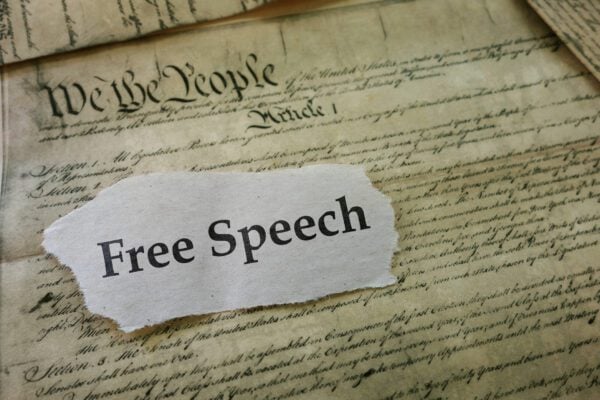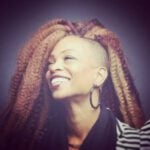The presumed fight for free speech has become a masterclass in silencing.
Politicians champion the First Amendment while simultaneously banning books, erasing curricula, criminalizing journalists and expelling anyone or anything who dares to exercise the power of diverse perspectives. It is a blatant paradox that borders mockery — yet it persists.
The “anti-censorship” crusade is not a shield for “free” speech but a sword against it, slashing through literature, knowledge, fact, and dissent with surgical exactness. The presumed plight is more about who gets the right to speak rather than all having the right to speak — with “who” and “all” at the center of the battle.
The question of ‘who’ is never settled; it is continuously reshaped, redefined, and manipulated to serve those already in power. The current ‘anti-censorship’ battle exposes a contradiction: those claiming to fight for free speech often wield that struggle to determine who is allowed to speak, who gets heard, and who is erased.
History has illuminated the regurgitated debate over who is included, who is protected, and who is excluded from the promises embedded in the U.S. Constitution. The deliberate ambiguity of U.S. Constitutional phrases like ‘We the People’ and ‘Subject to the Jurisdiction Thereof’ has led to reinterpretations that unsettle the 14th Amendment’s initial intent and protections.

The growing concern surrounding additional interpretations of the law is that it repeatedly infringes the clear precedent set and traditionally affects people of color, women and immigrants. Moreover, today’s ‘anti-censorship’ crusade, as it is framed, distorts the 14th Amendment, twisting equal protection, due process and citizenship into political weapons.
The Equal Protection Clause should ensure all students have access to an equitable education, including a historically accurate curriculum, diverse perspectives and unfiltered literature. But modern “anti-censorship” laws are ironically censoring critical discussions on race, gender and identity under the guise of “protecting students.”
Asserting that “forced exposure” to diverse perspectives infringes on “certain” students’ rights as the core argument for Black history book banning, negating identity rights and censuring authors like Martin Luther King, Nikki Giovanni, bell hooks, Jason Reynolds, Ibram X. Kendi, Howard Zinn, Ta-Nehisi Coates, and Indiana’s John Green undermine students’ right to a complete education.
The Due Process Clause should protect against government overreach, including state-imposed limitations on speech. However, many anti-censorship advocates today are not fighting for free expression; they are pushing for state-controlled narratives — banning books, restricting classroom discussions and punishing teachers whose text/paired texts are “unapproved” content, forcing fugitive pedagogy and andragogy.

The guarantee of birthright citizenship and equal protection under the law — includes the right to self-identify and exist as an individual.
Yet, today’s censorship extends to banning discussions on race and identity, stripping students and teachers of their ability to discuss their own lived experiences. This leaves one to wonder if this is about preventing indoctrination or if it is about erasing identities that challenge the status quo.
The 14th Amendment was designed to augment civil rights, but contemporary arguments use its framework to restrict access to knowledge, identity and history, with longstanding ramifications if not challenged and rejected.
Under the guise of championing open discourse and opposing speech control, the push for ‘free speech’ has long been a tool for shaping dominant narratives in the United States. It is a direct play on words, labeled “identity politics,” while using identity to yank the chain of polarization. The First Amendment guarantees free speech but has rarely been applied equally across racial, gender and class lines.
Censorship has never been about protecting speech — it has always been about power, deciding who gets to speak, who is heard and who is erased, all while masquerading as the defense of free expression.
Tasha Jones is a poet, writer, researcher, and educator whose work explores language as a tool for liberation and resistance. She hosts In the Beginning: The Spoken Word Podcast, the #1 spoken word podcast on Apple and Spotify. Tasha is also the Poems & Parables Literary Journal editor and is currently writing Pyramids. Plantations. Projects. Penitentiaries. You can follow her on social media: @iamtashajones, @itbspokenwordpod, and @poemsandparables.










